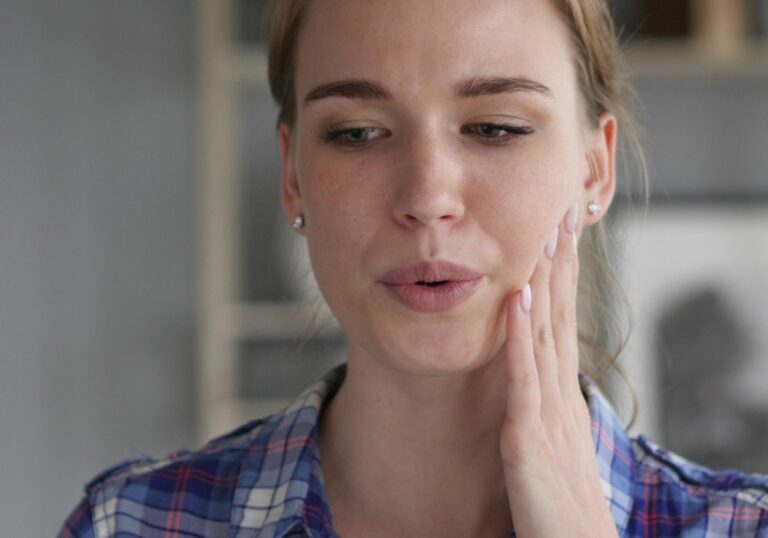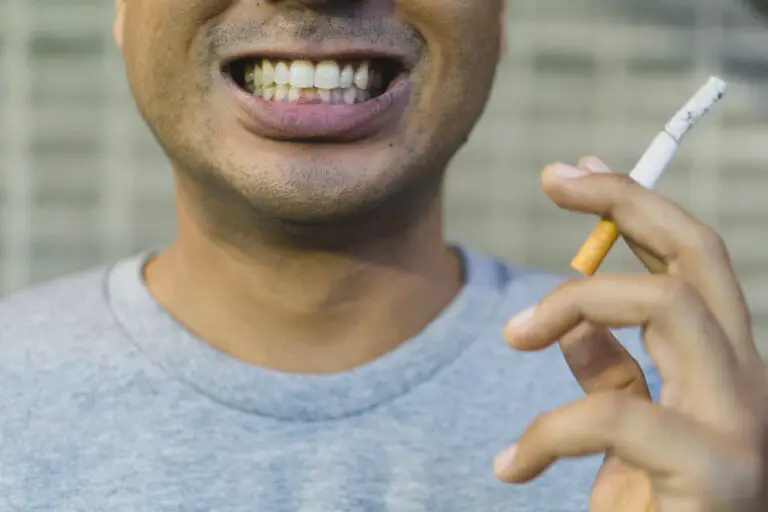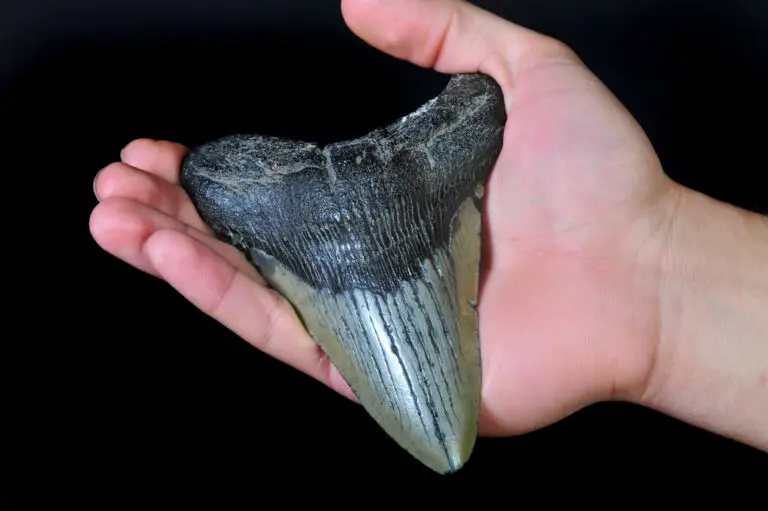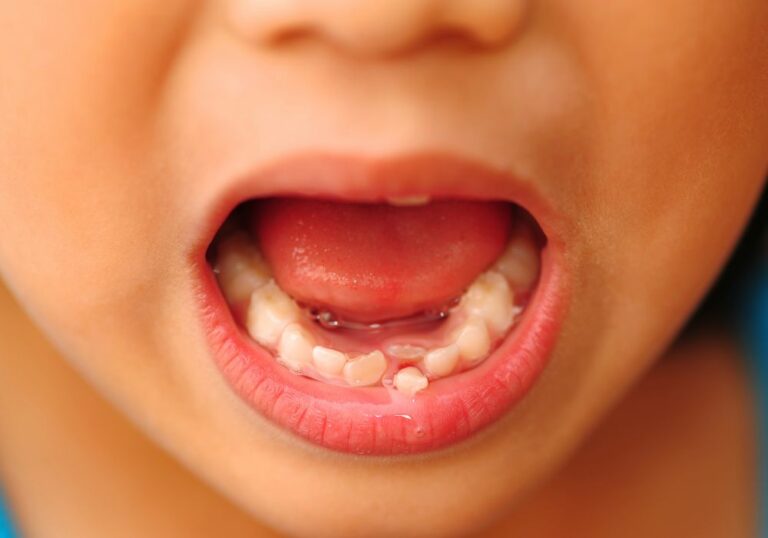If you’re experiencing tooth pain when you chew, it can make eating a painful and uncomfortable experience. The good news is that there are several possible causes for this type of pain, and many of them can be treated by a dentist. In this article, we’ll explore some of the most common reasons for tooth pain when chewing, and what you can do to alleviate the discomfort.
One possible cause of tooth pain when chewing is a cavity. Small cavities may not cause any pain or sensitivity, but larger ones can be quite painful. If you suspect that a cavity is the cause of your tooth pain, it’s important to see a dentist as soon as possible. They can fill the cavity and stop the pain before it gets worse.
Another possible cause of tooth pain when chewing is a crack or fracture in the tooth. This can happen if you bite down on something hard, or if you grind your teeth at night. Depending on the severity of the crack, your dentist may recommend a filling, crown, or even a root canal to fix the problem. Whatever the cause of your tooth pain, it’s important to seek treatment sooner rather than later to prevent further damage and discomfort.
Understanding Tooth Pain

If you’re experiencing tooth pain when you chew, it can be a frustrating and uncomfortable experience. Understanding the causes and symptoms of tooth pain can help you take the necessary steps to alleviate the discomfort.
Causes of Tooth Pain
Tooth pain can have a variety of causes, including:
- Tooth decay
- Gum disease
- Tooth abscess
- Tooth fracture
- Tooth sensitivity
- Dental work
- Sinus infection
Tooth decay is one of the most common causes of tooth pain. When bacteria in your mouth produce acid, it can erode the enamel on your teeth, leading to cavities. If left untreated, cavities can progress and cause tooth pain.
Gum disease, also known as periodontal disease, can cause tooth pain when the gums become infected and inflamed. This can lead to gum recession and tooth loss if left untreated.
A tooth abscess occurs when there is a bacterial infection in the tooth’s pulp, which can cause severe pain and swelling. A tooth fracture can also cause pain when chewing, as the fracture can expose the sensitive inner layers of the tooth.
Symptoms of Tooth Pain
Tooth pain can present in different ways, depending on the cause. Some common symptoms of tooth pain include:
- Sharp pain when biting down
- Dull ache or sensitivity
- Swelling around the tooth
- Bleeding or swollen gums
- Tooth discoloration
- Bad breath or taste in the mouth
If you’re experiencing tooth pain, it’s important to see a dentist as soon as possible to determine the underlying cause and receive appropriate treatment. In the meantime, you can alleviate the pain by avoiding hard or crunchy foods, taking over-the-counter pain relievers, and rinsing your mouth with warm salt water.
Prevention of Tooth Pain

Tooth pain can be prevented by taking care of your teeth and gums. Here are some preventive measures that you can take to avoid tooth pain.
Regular Dental Check-ups
Regular dental check-ups are essential to maintain good oral health. You should visit your dentist at least twice a year for routine check-ups and cleanings. During these visits, your dentist will examine your teeth and gums for any signs of decay, gum disease, or other dental problems. Early detection of dental problems can prevent them from becoming more serious and painful.
Healthy Eating Habits
Eating a healthy diet can help prevent tooth pain. Avoid sugary and acidic foods and drinks, as they can cause tooth decay and erosion. Instead, choose foods that are rich in calcium, such as milk, cheese, and leafy greens, as they can strengthen your teeth and bones. Also, drink plenty of water to keep your mouth hydrated and rinse away food particles and bacteria.
Proper Oral Hygiene
Proper oral hygiene is crucial to prevent tooth pain. Brush your teeth twice a day with fluoride toothpaste and floss daily to remove plaque and food particles from between your teeth. Use an antiseptic mouthwash to kill bacteria and freshen your breath. Also, replace your toothbrush every three to four months or sooner if the bristles are frayed.
By following these preventive measures, you can avoid tooth pain and maintain good oral health. Remember to visit your dentist regularly, eat a healthy diet, and practice proper oral hygiene.
Home Remedies for Tooth Pain
If you’re experiencing tooth pain when you chew, you may be wondering what you can do to alleviate the discomfort. While it’s always important to see a dentist if you’re experiencing tooth pain, there are some home remedies that may help in the meantime. Here are a few options to consider:
Cold Compress
A cold compress can help to reduce inflammation and numb the area around the tooth. To make a cold compress, you can wrap a few ice cubes in a towel and hold it against the outside of your cheek near the affected tooth. Alternatively, you can use a bag of frozen vegetables or a cold gel pack. Apply the cold compress for 15-20 minutes at a time, a few times per day.
Salt Water Rinse
A salt water rinse can help to reduce inflammation and kill bacteria in the mouth. To make a salt water rinse, dissolve 1/2 teaspoon of salt in a cup of warm water. Swish the solution around in your mouth for 30 seconds, then spit it out. Repeat the rinse a few times per day.
Over-the-Counter Medication
Over-the-counter pain medication such as ibuprofen or acetaminophen can help to reduce pain and inflammation. Be sure to follow the dosage instructions on the package and speak with your doctor if you have any concerns. Additionally, topical numbing agents such as benzocaine can be applied directly to the affected area for temporary relief.
Remember, while these home remedies may provide temporary relief, it’s important to see a dentist if you’re experiencing tooth pain. Your dentist can identify the underlying cause of your pain and recommend appropriate treatment.
When to Seek Professional Help

If your toothache persists for more than a day or two, it may be time to seek professional help. Here are some signs that indicate you should make an appointment with your dentist:
Persistent Pain
If your toothache doesn’t go away after a few days, it could be a sign of a more serious problem. Your dentist can help you determine the cause of your pain and recommend appropriate treatment.
Severe Pain
If your toothache is severe and accompanied by swelling or fever, it could be a sign of an abscess or infection. These conditions require immediate attention from a dental professional.
Signs of Infection
If you notice any signs of infection, such as pus or a foul taste in your mouth, it’s important to see a dentist right away. Ignoring these symptoms can lead to more serious health problems.
Remember, your dentist is there to help you maintain good oral health and prevent problems before they become more serious. Don’t hesitate to make an appointment if you’re experiencing tooth pain or any other dental issues.
Frequently Asked Questions
How can I relieve tooth pain when chewing?
To relieve tooth pain when chewing, try rinsing your mouth with warm salt water. This can help reduce inflammation and kill bacteria that may be causing the pain. You can also use over-the-counter pain relievers, such as ibuprofen or acetaminophen, but be sure to follow the recommended dosage.
What could be causing my tooth pain when biting down?
Tooth pain when biting down can be caused by a variety of factors, including tooth decay, a cracked tooth, or a loose filling. It can also be a sign of gum disease or an abscessed tooth. If you are experiencing tooth pain when biting down, it is important to see a dentist as soon as possible to determine the cause and receive appropriate treatment.
Are there any home remedies for tooth pain when biting down?
In addition to rinsing your mouth with warm salt water, you can try applying a cold compress to the affected area to help reduce swelling and numb the pain. You can also try using clove oil, which has natural numbing properties, or a topical numbing gel.
Why do I experience sharp pain in my tooth when chewing gum?
Chewing gum can sometimes cause tooth sensitivity or pain. This may be due to overuse of chewing muscles or an underlying dental issue, such as tooth decay or a cracked tooth. If you experience sharp pain in your tooth when chewing gum, it is best to avoid gum until you can see a dentist for an evaluation.
How can I prevent tooth pain after biting a hard object?
To prevent tooth pain after biting a hard object, be mindful of what you are chewing on and avoid biting down on hard objects, such as ice or hard candy. If you do accidentally bite down on something hard and experience tooth pain, see a dentist as soon as possible to check for any damage.
What are some ways to reduce gum pain when biting down?
If you are experiencing gum pain when biting down, try rinsing your mouth with warm salt water or using an over-the-counter numbing gel. You can also try using a soft-bristled toothbrush and brushing gently to avoid further irritation. If the pain persists, see a dentist to determine the cause and receive appropriate treatment.







